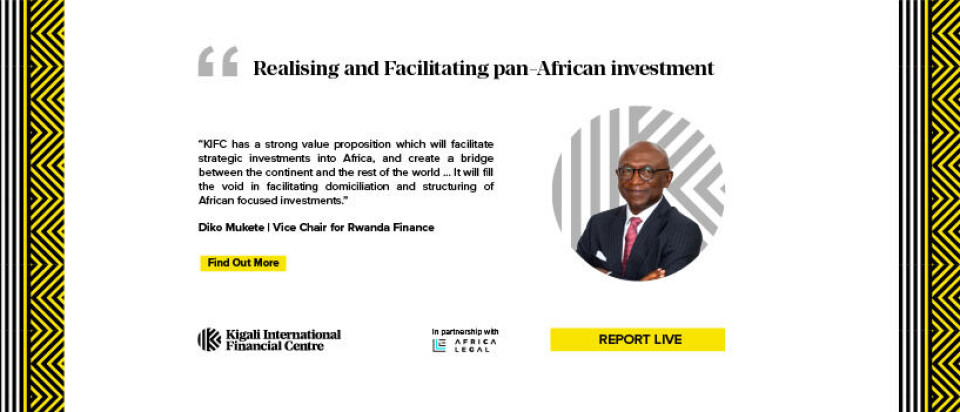In this article Diko Mukete, the Vice Chair of Rwanda Finance, gives his view on the report, which was compiled in partnership with Africa Legal, and is titled: “Realising and Facilitating pan-African Investment”.
“I have reviewed the KIFC research and analysis report on doing business in Africa and found it insightful. It is well written and informative. The survey findings and expert opinions within the report are useful and will go a long way in helping to position KIFC.
Many challenges have been identified. A few that stand out include: (i) inconsistent regulatory framework; (ii) corruption, bribery, security; (iii) lack of infrastructure to support investment on the ground; and (iv) perception that Africa lacks the capacity to utilise capital received.
A key point that stands out is that African entities only sometimes get involved in advising on deals. Given that knowledge of the local environment is considered critical, there is great opportunity for KIFC to lead within this space. Such positioning can also help Rwanda become a viable alternative to Mauritius with respect to jurisdictions for structuring investments. The SME space also provides opportunities for KIFC to have an impact.
The report also notes that restructuring of the Rwanda Investment Code has been a big attraction and that KIFC is pushing for more innovation in banking and regulation. This already provides a strong foundation. The challenge though is how to replicate such successes (improvement of the enabling environment), across Africa.
While KIFC provides investors with the comfort and confidence to invest in Africa, the overall concern about stability and predictability of the legal and regulatory frameworks remains an issue.
The high cost of doing business, resulting from the volatility of the legal and regulatory frameworks, affects the risk-return calculations. This explains why many investments that are commercially profitable and economically attractive do not materialise. Reliable regulations and robust business-friendly institutions are key to de-risking private investment.
In my view therefore, concerted effort is needed to improve the continent’s global image. In particular, the negative perception of Africa as an investment destination must be dealt with. There continues to be a perception of unacceptable levels of risk, particularly political and business risks, in Africa. Unless this perception changes, despite KIFC’s efficiency and effectiveness, there will continue to be a drag on investment flows from outside the continent.
In my view, a few areas also worth taking a closer look at include:
(i) Possible harmonisation of investment codes;
(ii) Increased emphasis on intra-Africa investments rather than a heavy focus on investments from outside the continent;
(iii) Innovative risk mitigating instruments (such as guarantee schemes) to help deal with the negative perception of Africa as an investment destination.
In conclusion, it is a good piece of research that meets professional standards and deserves to be widely read by all stakeholders, particularly professionals, regulators, and policy makers, interested in understanding the current challenges and opportunities for realising and facilitating pan-African investment.”
To read and download the report, click here.
To join Africa Legal's mailing list please click here

